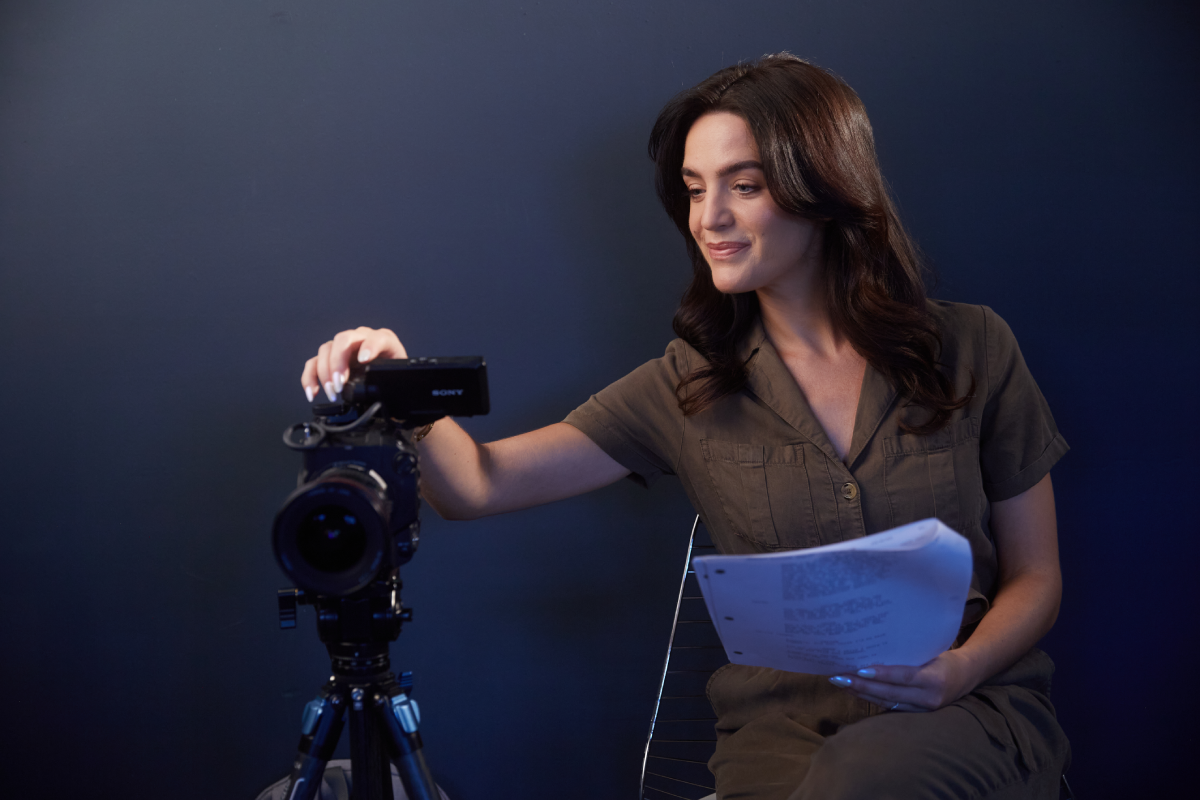Even if the idea hasn’t yet piqued your interest, producing your own work can help you gain beneficial hard and soft professional skills, as well as a healthy dose of creative pride. Actress and screenwriter Abiola Ogunbiyi shares her tips on making your own work and how to start.
The accessibility of technology and equipment has allowed artists across the world to reach new audiences with fresh and disruptive stories; why not throw yours and your potential collaborators’ ideas into the mix?
Whether you’ve long felt the call to tell your own stories, or simply want to explore creativity in a new way, bringing your own ideas to life can add new depth and daring to your craft and career approach.
Here are just a few things you can gain as an actor by tagging a ‘slash maker’ onto the end of your bio:
Showcase Untapped Strengths
If your castings or roles aren’t showcasing the full scope of your creative strengths, turn to your inner creator and craft a project that brings them out. Rather than telling your agent or casting directors about a hidden skill, you’ll be able to show them directly through something you’ve made highlighting that talent.
Anything from a short solo reel to a piece made with others with the same strength gives you content to share on your Spotlight CV, website, or social media. And once that work is there, anyone who visits your page can suggest – or hire! – you for those skills.
Feel The Grass On The Other Side
Creating your own project is a window into all the coordination, admin, and research done even before the first day of rehearsal. You’ll have to stay committed and organised to see your project through to the end, learning how to craft numerous emails, write contracts, take measurements and lunch orders – all-in-all helping you develop a 360° view of a production from multiple angles.
Depending on what you create, you’ll get the opportunity to be directly involved in the casting process, and being on the other side of the audition table can help foster peace in your own acting journey. You’ll see first-hand that it’s a combination of factors that go towards choosing who gets a part. You can then take what you’ve learnt into your own auditions, and create an approach where you can still do your best work, whilst accepting the many reasons a team may go in a different direction.
Discover New Passions (& “No Thank You” Areas)
Whilst working on the different production stages of your project, you might discover a love or natural aptitude for another career in the industry. Your communication and problem-solving skills could make you a born director, or production coordinating could be the perfect match for your time management and organisational skills.
Making your own work is a process of discovery; it’s okay to discover that you don’t particularly enjoy it. If a certain part of the process wasn’t enjoyable, you might want to delegate that to someone else next time, or work in a different medium. As you try your hand at different projects, you’ll build up a catalogue of interests to further define your voice as an artist.
Grow Your Network Tree
In my opinion, this is the best part of DIY work! If you have an idea for a project, don’t feel that you have to go it all alone. Working with other artists can help you gain new knowledge of different industry fields, improve your teamwork and collaboration skills, and get the benefits of social connection with other creatives.
When you finish a project, look for opportunities to present the hard work you and your collaborators have done. As well as being there to hear an audience’s response to your work, events are an amazing way to connect with other artists and creators, and share your passion – and contact details – and foster new professional relationships, whether you work together one day, or simply stay connected to share news and positive creative vibes.
An Art-Centred Confidence Boost
In a field where most of our work is actually just trying to get work, bringing your own project to life can be the most accessible window to new levels of agency and artistic empowerment. It won’t be guaranteed smooth-sailing, especially as you learn just how far a budget and schedule will need to go, but much of the reward of self-led work comes in reflecting on all the obstacles you and your team have overcome.
As well as the fulfilment that comes from completing your own project, you’ll get to celebrate the knowledge you’ve gained, and friends made through the process. You’ll also have a new answer to the “So, what have you been up to?” audition prompt, and have something creative to be working on between jobs, or alongside your supporting trade, until your next contract.
Where To Start:
Think of the stories you’d like to tell and skills you’d like to showcase and brainstorm as many initial ideas as you can. Consider different mediums to your usual selections; a story could be a great play, but it could also be a gripping podcast, binge-worthy web-series, or delightful stop-motion film. Once you have some ideas, choose 1-2 that stimulate you most, feel most relevant to your goals, and match your current resources. Search for step-by-step articles and videos on how to bring that work to life. You can also reach out to current and former work colleagues for any people with first-hand experience.
For training and networking opportunities, find the relevant organisation for your project and explore their resources. Several UK theatres offer opportunities to create work and connect with potential collaborators, like the Young Vic Creators Program, Soho Theatre Labs, and Royal Exchange opportunities. Other educational websites include FutureLearn (free/paid), ScreenSkills (free/paid), Masterclass (paid/free blog).
You can self-fund your work if the option is available to you, but it’s a good shout to explore funding and financing initiatives, as well as any relevant writing/devising competitions if you’re motivated by external deadlines.
Also, stay subscribed to the Spotlight Performers newsletter, which has a range of creative writing and devising workshops within Spotlight’s events programme.
 Abiola Ogunbiyi is an actress and screenwriter, whose performance credits include Mamma Mia!, The Book of Mormon, Alone In Berlin, Girls (Theatre); Jamestown, The Interview (Television), and A Boy Called Christmas (Film). Her short film Sexellence won Best International Film at the Portland Comedy Film Festival (2018), and Best Comedy Short at the Grand Budapest Film Festival (2019). In addition to writing and acting, Abiola runs the platform To Be A Better Artist, facilitating workshops to support wellbeing amongst creative professionals.
Abiola Ogunbiyi is an actress and screenwriter, whose performance credits include Mamma Mia!, The Book of Mormon, Alone In Berlin, Girls (Theatre); Jamestown, The Interview (Television), and A Boy Called Christmas (Film). Her short film Sexellence won Best International Film at the Portland Comedy Film Festival (2018), and Best Comedy Short at the Grand Budapest Film Festival (2019). In addition to writing and acting, Abiola runs the platform To Be A Better Artist, facilitating workshops to support wellbeing amongst creative professionals.
Abiola’s Headshot by Crista Leonard.
Main Photo by Christina @ wocintechchat.com on Unsplash



















